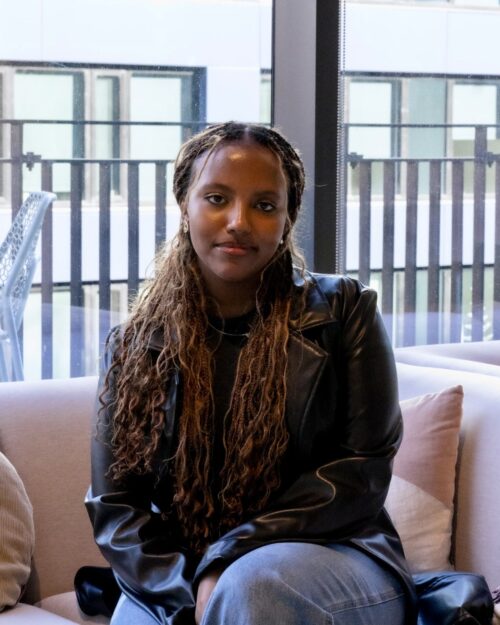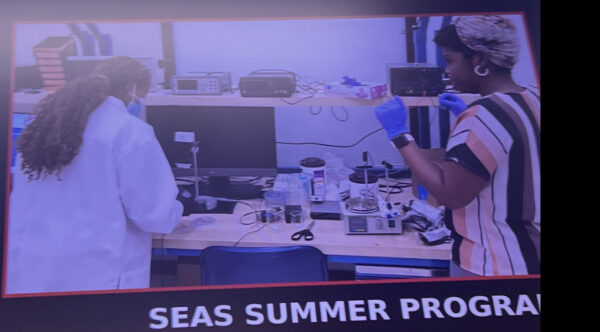February 13, 2025

Roza Ayele is a high school junior with an impressive number of leadership roles in her resume. She serves as the president of HOSA, a healthcare-focused organization; vice president of Model UN; an intern with an after school venture program; and current member of her school’s Student Government Association.
Last year, Roza discovered AEOP through a friend’s recommendation about the University of the District of Columbia’s (UDC) Internship program. Curious about exploring STEM opportunities, she decided to apply – read on to learn how this Internship has fueled Roza’s passion for STEM.
Roza has always been interested in STEM, specifically the medical field. She was born in Ethiopia and lived there until she was 10. After moving to America, she was able to compare the two healthcare systems. She values this unique perspective, which has provided her with valuable insights and deeper understanding of the field.

Sharing that her passion lies in healthcare, Roza’s mentors looked for a way to combine her interest with the research that was already happening in the lab. This led her to explore sound engineering as an introduction to acoustic waves. She learned some coding, and her research project focused on identifying traumatic brain injury via the eyes using ultrasound waves – specifically, pig eyes. “They didn’t smell that great,” Roza noted, but she found it to use an ultrasound machine to examine their internal structures.

With the 15 eyes she had to work with, Roza injected various chemicals and substances to test their reactions and determine which areas of the eye responded to what. She describes the experience as entirely new and even a bit intimidating, but she felt very supported by her mentors.
Roza’s summer Internship introduced her to new people and concepts. She and three other interns – one old friend, and two new – worked together in the UDC labs. For Roza, it felt “like a family,” and she appreciated that her colleagues came from different grade levels , including an undergraduate student. This dynamic allowed her to explore challenging concepts and gain unique experiences that pushed her learning to a new level.

At UDC, Roza had the opportunity to interact with others who had interned at NASA and learn about their drone work. She heard from multiple professors and worked in the lab alongside undergraduate students, which was great for an exchange of ideas. Roza shared that conducting so much hands-on work was her favorite part of the Internship. She felt like she was making a difference – doing, learning and contributing. For her, this was an experience she will always be able to draw from.
Professionally and personally, Roza grew during her Internship. Besides gaining valuable hands-on research experience, she was introduced to networks she did not have access to before and became part of a community of collaborators across a range of education levels. 
Looking to the future, Roza is curious to explore more areas within the medical field. She is considering a degree in neuroscience, and a minor in international affairs. Her passion for healthcare remains strong.
To other students who may be considering AEOP Internships, Roza says, “Submit the application!” Last year at this time, she had no idea where she would end up, but she’s learned that you never know what an opportunity may bring to you. “There’s a whole community that supports you throughout the entire internship experience,” she explains. ”It’s not just about the project itself, but the process – collaborating with others in a hands-on environment – that’s what’s most meaningful.”
Find a Volunteering Opportunity
Visit our Program Volunteers page for a tool to find the best opportunity for you.
eCYBERMISSION Mini-Grant
The eCYBERMISSION Mini-Grant is intended to support teachers/program leaders as they implement eCYBERMISSION with their teams. Educators (formal and informal) of students in grades 6-9 are encouraged to apply.
